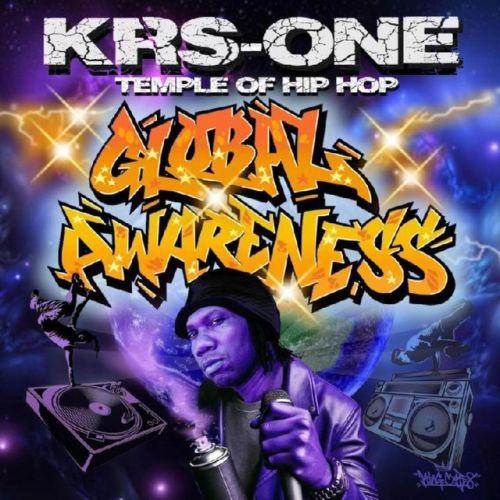Reviewing KRS-One albums in 2025 feels like a thankless task, given that everyone reading this website should be well aware of who KRS-One is, what he stands for, and what he means to Hip Hop. At 59 years old, he’s one of the oldest active rappers, and his latest album still managed to impress me in fits and spurts. Listening to “Let It Go” and “Street Rap” feels like good ol’ KRS-One, with some production that is defiantly old school yet modern enough not to feel crusty. Musically, both of these songs emphasise how The Teacha can still craft the occasional head-nodder/foot-stomper, it’s just often not frequent enough to warrant a full LP.
The song “Aight” isn’t far off from a crowd-pleasing song that would go off at his live show, with more than a pinch of Lil’ Jon to it. The ominous bassline of “50 More Years of Hip Hop” fits KRS’ scathing approach as he declares that we can do fifty more years of Hip Hop, which will take KRS to nearly 120 years old, something I wouldn’t be surprised to see given he’s “not ready to retire” (“The Sound You Miss”). The flirtations with Caribbean accents, which have been a notable addition to the Bronx emcee’s arsenal over the years, return on “How Long Demma Steal”, and feel like The Teacha is back giving lessons on how Hip Hop culture has been stolen. It’s familiar territory, no doubt, and the album has a very singular focus, one that the Bronx veteran has battered listeners over the head with for decades now.
“The Sound You Miss” spells this out most explicitly, even though he applies some more modern styles of production (that’s unfortunately hard to find credits for). As great as it is to hear KRS still rocking the mic, he is regurgitating the same message: there’s nothing more Hip Hop than KRS-One, and he’ll make sure you don’t forget about it. One aspect of KRS-One that remains somewhat unclear is his ongoing association with The Temple of Hip Hop, where KRS has positioned Hip Hop as an unofficial religion with himself as its prophet. The album does reference and advertise this (most obviously in the LP’s title) along with some parallel activities, such as the Hush Hip Hop Tours.
As with any KRS-One album since the 1990s, there’s a handful of iffy decisions that I found myself skipping. “Woe” is one; an ill-advised experiment with a fast-paced instrumental you might hear Eminem stretching the English language over, and “Here Today” leans too far into his corny filler songs that became too common after he went independent in the early 2000s. Just in case you’re new to KRS, there are some thoughtful dedications from Ed Lover, Scarface, Bun B and B-Real that wouldn’t sound out of place on a posthumous record.
Fortunately for KRS, and his many fans of which I am one, he’s not going anywhere. The amount of energy that’s still prevalent in his delivery feels like he’s defiantly enforcing his claim from 1995’s “Mad Izm” that he’ll be “rippin’ the microphone until I’m motherfuckin’ sixty”. He wasn’t lying. Considering the last twenty years have been decidedly hit and miss as far as musical output goes, “Temple of Hip Hop Global Awareness” exceeds expectations and is far better than the DIY artwork suggests.

